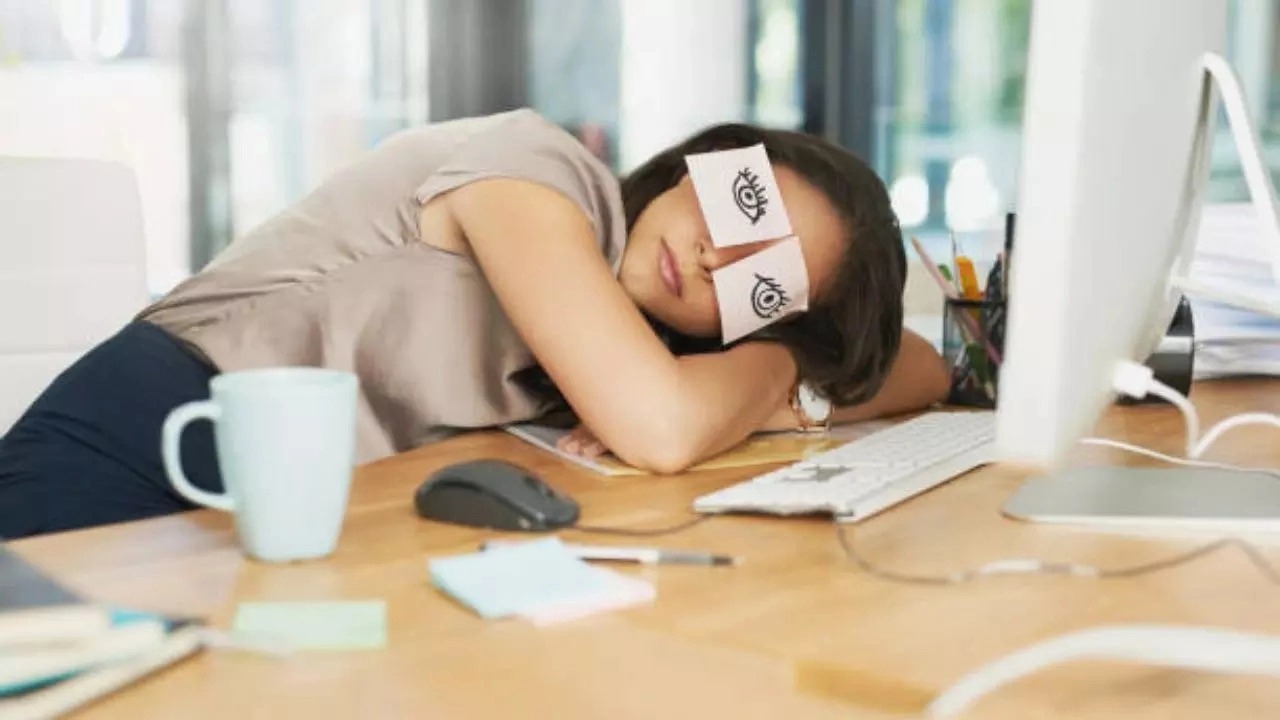Ashima Sharda Mahindra • 04 Oct 2024
Most Americans Struggle With Poor Sleep and Daytime Drowsiness, Says Study; Here's Why

Daytime sleepiness is taking a toll on physical and mental health of Americans - having heart diseases, diabetes, obesity, stress and anxiety
Insomnia Cases In US: At least eight out of ten Americans sat they do not get enough sleep and struggle to go through their day feeling drowsy, according to a new survey. The study, sponsored by the American Academy of Sleep Medicine says at least 54 per cent of adults in the United States are sleep deprived – a condition which can cause grave effects to physical and mental health.
"Daytime sleepiness is more than just an inconvenience -- it can affect our ability to function our best, impacting everything from work productivity to personal relationships," said Dr. Alexandre Abreu, sleep specialist and a spokesman for the American Academy of Sleep Medicine.
According to the online poll – which included more than 2,000 adults, conducted last month, revealed that daytime sleepiness is taking a big toll on overall health and well-being. Nearly half, 47 per cent of respondents said it hampers their productivity, making it hard to focus and complete work efficiently. Also, one third or 31 per cent said sleepiness is affecting the quality of their work -- a complaint more often voiced by men than by women.
The poll also resulted in nearly 35 per cent of respondents saying they see effects of sleepiness on their memory and mental recall, along with 16 per cent who said it affects their reaction time behind the wheel. However, nearly a quarter, or 24 per cent said it affects their relationships with family and friends.
"These statistics paint a clear picture of the widespread impact of daytime sleepiness," Abreu said in a news release.
Why are Americans struggling to get sound sleep?
According to experts, poor sleeping habits, stress, and conditions that disrupt people's internal sleep-wake schedule like shifts in their jobs cause many cases of insomnia and excessive daytime sleepiness.
However, sometimes the cause is a disorder, such as obstructive sleep apnea, restless legs syndrome, narcolepsy, or a mental disorder. Other reasons include emotional or mental distress like sadness or worrying, feeling too hot including having hot flashes or night sweats, body pain, or bad dreams.
How much sleep is needed for a healthy body and mind?
According to the prescribed guidelines, adults must get at least 7 to 9 hours of uninterrupted and regulated sleep at night. Those who sleep less than seven may have more health issues than those who sleep more. Doctors say sleeping less is linked to a higher risk of conditions like:
- Heart disease
- Stroke
- Diabetes
- Mood disorders
- Obesity
How to get regular sleep?
A few ways you can get sound sleep include:
- Create a proper sleep routine.
- Turn off television, computers, and other blue-light sources an hour before bed.
- Limit taking caffeine and alcohol
- Avoid heavy meals at night
- Avoid afternoon naps
- Exercise regularly
- Make your bedroom comfortable
- Manage stress
Get Latest News Live on Times Now along with Breaking News and Top Headlines from Health and around the world.